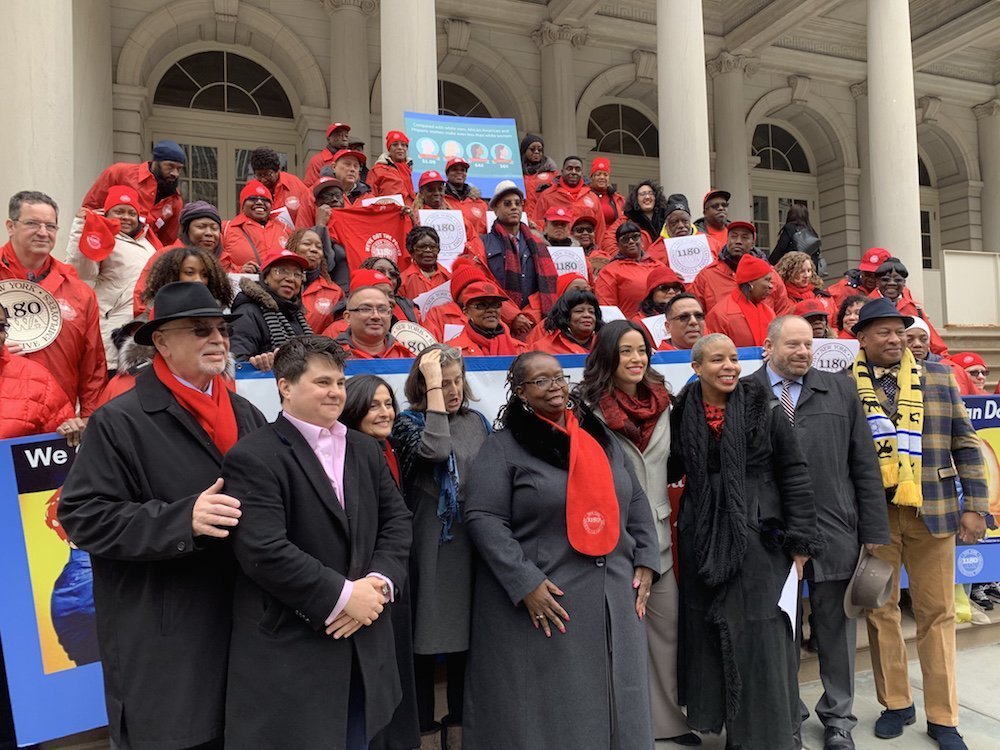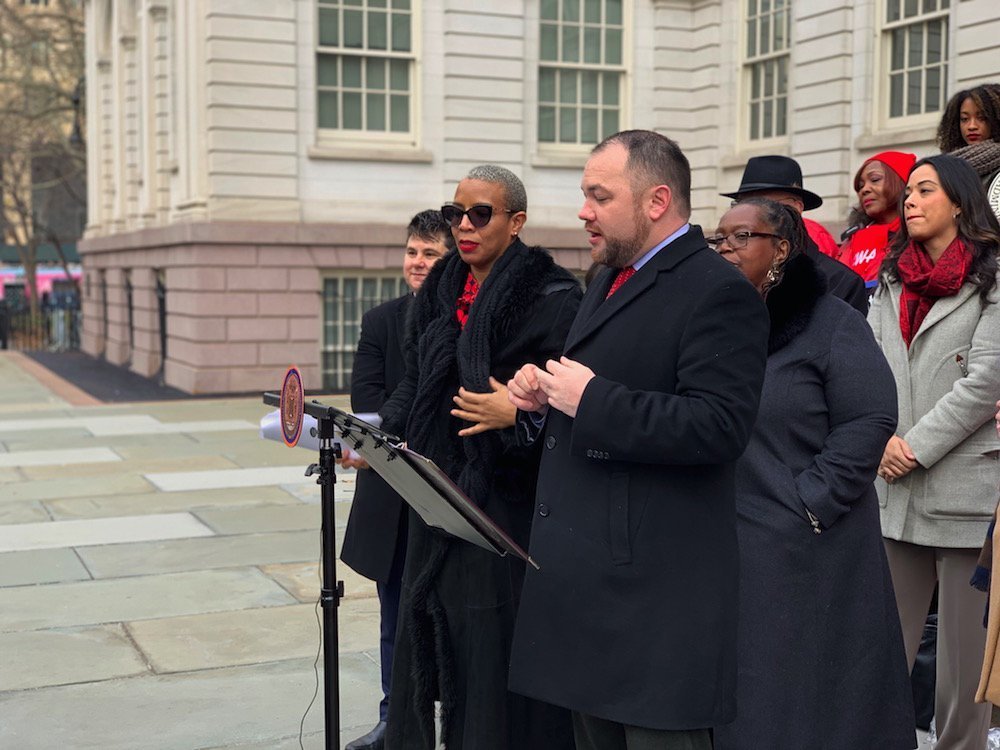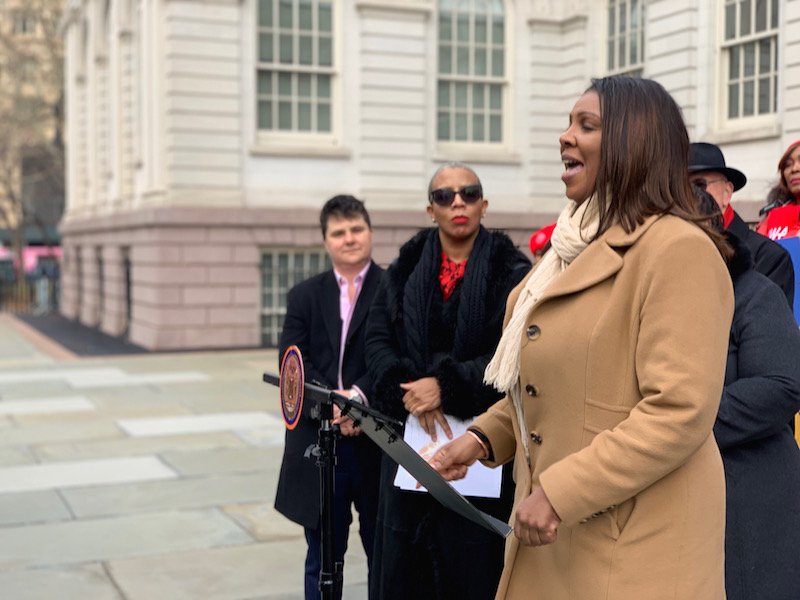The City Council today overwhelmingly passed City Council Majority Leader Laurie Cumbo (D-Fort Greene, Clinton Hill, Prospect Heights, Crown Heights) legislation requiring the Mayor’s Office of Data Analytics (MODA) to provide annual reports regarding wage disparities on the basis of ethnicity, gender and race so they may be addressed.
The vote was 47-1 with City Council Member Kalman Yeger (D-Boro Park, Flatbush, Midwood) being the only vote against the measure. Absent from the meeting were City Council Members Justin Brannan (D-Bay Ridge, Dyker Heights, Bensonhurst, Bath Beach), Antonio Reynoso (D-Williamsburg, Greenpoint) and Deborah Rose (D-Staten Island).
“Women represent half of our city’s population and workforce; and yet we have been shortchanged by the very economic system that flourishes because of our contributions,” said Cumbo in a rally before the vote. “Women in New York City can no longer afford to be nickeled and dimed while we are the ones holding down our communities, households, and families; we are thriving in the workforce.”

City Councilmember Daneek Miller (D- Cambria Heights, Hollis, Jamaica, Jamaica Estates, Laurelton, Queens Village, Springfield Gardens, St. Albans) supported the potential law as it focuses on closing social and economic gaps which were formally overlooked.
“Introduction 633 lifts the curtain on the extreme pay disparities that have limited the upward mobility and earning potential of these dedicated members who toiled for generations only to see their ascent slowed by a deep-seated culture of nepotism, privilege, and sexism,” said Miller in a written statement for the rally.
The Communications Workers of America local 1180 (CWA1180) appeared as a sea of red as they stood across the City Hall steps holding posters of Rosie the Riveter behind Cumbo, City Council Speaker Corey Johnson (D-Manhattan), Public Advocate Letitia James and Councilwoman Helen Rosenthal (D-Manhattan) and Carlina Rivera (D-Manhattan).
Cumbo, introduced the current Public advocate and new Attorney General Letitia James, as “one of the hardest working women she knows,” to speak out about the importance of unifying and bringing up all voices in the city of New York.
“We all know equal pay for equal work is nothing more but a slogan,” said James. “We’re going to make sure that individuals are held responsible for paying women less than their male counterparts for doing the same work.”
While the law focuses not only on gender wage disparities, the rally focused on the importance of bringing up women and more specifically woman of color in the working world – and not letting them get stuck behind men and outdated legislation.

Former president of CWA 1180 Arthur Cheliotes spoke about how long it has taken for this law to get the mobility it needed to make a change- and the importance that the new data could make in pursuing growth for women.
“This has been a long journey, the women of local 1180, the equal pay act was signed by John Kennedy on June 10 1963, I was at Van Wyck junior high school a 15-year-old at the time,” said Cheliotes. “I had a sister, I had a mother, I had girl cousins, and as I grew up I saw the advantages that I had as a white-male over my sister, over my cousins, over other women.”
Johnson said he hoped the new law would make concrete changes for a very diverse city.
“We will make sure that the diversity in our cities workforce is celebrated like it should be not just with words but with paychecks,” he said.










